Budgeting for Vacancies and Unexpected Costs in Jupiter: A Comprehensive Guide
Understanding the Impact of Vacancies and Unexpected Costs
For property owners and managers in Jupiter, Florida, one of the most significant challenges is handling vacancies and unforeseen expenses. Both can disrupt your financial flow, affecting your profitability and causing stress. A well-thought-out budgeting strategy is key to mitigating the impact of these issues. Whether you are managing a single-family home or a portfolio of properties, having a financial cushion in place will help you weather these challenges effectively.
The Importance of Planning for Vacancies
Why Vacancies Occur
Vacancies are an inevitable part of the property management landscape. In Jupiter, especially in popular residential areas like Abacoa or Avenir, vacancies can happen for a variety of reasons, including:
- Market fluctuations: The local real estate market in Jupiter can be affected by changes in demand, seasonal trends, or shifts in the economy. Properties may stay vacant longer if the market cools or if there is an oversupply of rental units.
- Tenant turnover: Tenants may leave for personal reasons, or leases may end without renewals. High tenant turnover can increase vacancy rates and the associated costs of re-marketing and re-letting the property.
- Property condition and maintenance issues: If a property is not in good condition, it may struggle to attract new tenants. Regular maintenance and upgrades can help avoid these vacancies.
Calculating Vacancy Loss
When budgeting for vacancies, it’s essential to factor in the potential for vacancy loss. Vacancy loss is the period during which a property generates no rental income. A good rule of thumb is to anticipate vacancy losses as a percentage of your annual rental income. Here’s a basic formula:
Annual Rental Income x Vacancy Rate = Vacancy Loss
For example, if your annual rental income is $30,000 and the expected vacancy rate is 5%, the vacancy loss would be:
$30,000 x 5% = $1,500.
This means that, for this property, you can expect to lose about $1,500 annually due to vacancies. The vacancy rate will fluctuate based on the local market, but it’s important to account for this possibility in your budget.
Setting Aside a Vacancy Reserve Fund
One of the most effective ways to protect yourself from the financial impact of vacancies is to establish a vacancy reserve fund. This fund acts as a financial cushion that you can dip into when vacancies occur. The amount you set aside will depend on the type of property, its location, and your expected vacancy rate. A general recommendation is to set aside 3 to 6 months’ worth of rental income.
For instance, if your property rents for $2,000 per month, you might want to allocate between $6,000 and $12,000 to your vacancy reserve fund. Having this reserve can help you cover operating expenses, property maintenance, and other unexpected costs during periods when your property is vacant.
Handling Unexpected Maintenance and Repair Costs
Preparing for Unforeseen Maintenance
Maintenance and repair costs are another major expense that property owners must plan for. While regular maintenance tasks are easier to anticipate (such as annual HVAC inspections or landscaping), unexpected issues can arise without warning. These include:
- Plumbing issues: Leaks, burst pipes, or clogged drains can result in significant repair costs, especially if left unaddressed for too long.
- Roof damage: A sudden storm or wear and tear can cause leaks, requiring immediate repairs.
- Appliance breakdowns: Common appliances, such as refrigerators or water heaters, can fail unexpectedly, leading to high repair or replacement costs.
The Best Way to Budget for Repairs
The best way to manage unexpected maintenance costs is to create a repair and maintenance budget that includes both regular and emergency expenses. A common approach is to allocate a percentage of your property’s monthly income to cover maintenance and repairs. Many property owners set aside 1% to 2% of the property’s value annually for maintenance. If your property is worth $300,000, you might budget around $3,000 to $6,000 annually for maintenance.
It’s also advisable to factor in an emergency repair fund, separate from your regular maintenance budget. This fund can cover unplanned expenses that arise outside of normal wear and tear. A good rule of thumb is to keep an additional 10% of your total maintenance budget for these unforeseen issues. For example:
- Annual Maintenance Budget: $5,000
- Emergency Repair Fund: $500 (10% of the maintenance budget)
This structure will allow you to handle unexpected costs without putting yourself in a tight financial spot.
Getting the Right Insurance Coverage
Proper insurance coverage is essential for mitigating the financial impact of unexpected repairs and property damage. In Jupiter, where hurricanes and tropical storms are a concern, it’s especially important to have the right coverage for storm-related damage. Types of insurance you may need include:
- Property insurance: This covers damage to the physical structure of the property due to accidents, storms, or vandalism.
- Landlord liability insurance: This protects you in case of accidents that happen on the property, such as a slip and fall.
- Flood insurance: In flood-prone areas like parts of Jupiter, it’s wise to have additional coverage for flood-related damages.
Ensure that your insurance policies are up-to-date and that you fully understand what is covered. In many cases, insurance can help offset some of the repair costs, especially after significant damage or a natural disaster.
Planning for Regular Upgrades
To avoid costly repairs that could arise from neglect, it’s important to plan for regular upgrades and preventative maintenance. Upgrades such as replacing old plumbing, installing energy-efficient windows, or upgrading the roof can improve the property’s longevity and reduce the risk of sudden repairs. These proactive steps may also help increase the property’s appeal and rental value, allowing you to reduce vacancies and attract higher-quality tenants.

Get a Free Rental Analysis
Want to know how much your home will rent for? We’ll send you a free rental report!
Managing Cash Flow: Strategies for Reducing Operational Costs and Improving Budget Flexibility
Optimizing Operational Costs
Effective budgeting for vacancies and unexpected costs goes hand-in-hand with reducing operational expenses. The goal is to maintain or even improve your property’s performance while lowering the costs that eat into your profits. There are several strategies you can use to optimize your operational costs and make your property more cost-efficient.
1. Automating Property Management Processes
One of the most effective ways to reduce operational costs is by automating certain property management tasks. Automation reduces the need for manual labor, decreases human error, and can help you save time and money. Here are some areas where automation can make a big difference:
Rent collection: Instead of manually chasing down rent payments, automate your rent collection process using online payment platforms like Rentec Direct or Appfolio. These systems offer automatic reminders, enabling tenants to pay rent on time and reducing the need for late fee processing.
Maintenance requests: Property management software often includes maintenance tracking tools, allowing tenants to submit requests directly through an online portal. This can streamline the maintenance process and reduce the time you spend coordinating repairs.
Lease renewals: Automating lease renewals can save you time and effort while ensuring that you don’t miss important renewal dates. Property management software can send automated reminders to tenants and provide you with reminders when leases are up for renewal.
By automating these processes, you can cut down on operational expenses related to administrative tasks and reduce the time spent on manual activities.
2. Cutting Energy Costs with Efficiency Upgrades
Energy costs can be a significant part of the operational budget, but there are numerous ways to reduce these expenses through energy efficiency upgrades. As energy prices continue to rise, both tenants and property owners benefit from reducing consumption. Consider the following upgrades to improve energy efficiency:
Smart thermostats: Installing smart thermostats in your rental property can help reduce heating and cooling costs by automatically adjusting the temperature based on occupancy and weather patterns. Brands like Nest or Ecobee offer devices that can be controlled remotely, making it easier to manage energy use.
LED lighting: Replace traditional light bulbs with energy-efficient LED lighting. LEDs consume less power and have a longer lifespan, which translates into lower electricity costs over time.
Insulation and weatherproofing: Ensure that your property is properly insulated to maintain a comfortable temperature year-round. Sealing gaps around doors and windows can prevent energy loss and reduce the demand on heating and cooling systems.
While these upgrades may require an initial investment, they can lead to significant long-term savings by lowering energy bills and making your property more attractive to environmentally-conscious tenants.
3. Preventative Maintenance
Preventative maintenance is key to avoiding costly emergency repairs, which can drain your budget unexpectedly. Instead of waiting for problems to arise, set up a preventative maintenance schedule for your properties. This will help you identify issues early and address them before they become expensive repairs.
Regular inspections: Schedule inspections every 6 to 12 months for important systems such as plumbing, HVAC, and electrical. This can help you catch potential issues before they escalate into larger, costlier problems.
Servicing major appliances: Ensure that appliances, such as refrigerators, dishwashers, and washing machines, are serviced regularly. For example, cleaning refrigerator coils can improve efficiency and prevent breakdowns.
Roof inspections: In a place like Jupiter, where severe weather can cause significant damage, roof inspections should be a regular part of your maintenance plan. Early identification of roof leaks or weak areas can save you from major repairs later on.
Proactively maintaining the property not only extends the life of appliances and systems but also helps you avoid tenant complaints and downtime that could impact your revenue.
Diversifying Income Streams
While reducing operational costs is essential, another way to improve your budget flexibility is by exploring additional revenue streams. Relying solely on rental income can leave you vulnerable when vacancies or unexpected expenses occur. Diversifying your income can create more financial stability, even during slower periods.
1. Offering Premium Amenities and Upgrades
One effective way to boost revenue is by offering premium amenities or property upgrades that justify higher rents. These enhancements can add value to your property while increasing its desirability to prospective tenants. Some examples of premium offerings include:
Smart home features: Install smart technology such as smart locks, cameras, or lighting systems. These features not only appeal to tenants seeking convenience but can also differentiate your property in a competitive market.
Upgraded kitchens and bathrooms: Renovating kitchens and bathrooms is one of the best ways to add value to a property. A modern, updated space can command higher rents and attract more tenants.
Landscaping and outdoor spaces: Beautiful landscaping, private patios, or outdoor kitchens can enhance the curb appeal and make your property more appealing to high-end tenants.
These upgrades can help increase the rent you charge and provide a steady stream of additional income.
2. Short-Term Rentals
In a tourist-heavy area like Jupiter, Florida, short-term rentals can provide a profitable alternative to traditional leases. Offering your property for vacation rentals through platforms like Airbnb or Vrbo allows you to take advantage of the influx of tourists and seasonal visitors.
Seasonal demand: In Jupiter, the high season for vacation rentals typically spans from November to April, when the weather is perfect and visitors flock to the area. Renting on a short-term basis during peak season can generate significantly higher rental income compared to traditional leases.
Flexibility: Short-term rentals also provide flexibility in terms of rental terms. You can adjust prices based on demand, allowing you to maximize revenue. Additionally, with short-term rentals, you are not tied into long-term lease agreements, so you can take advantage of market conditions and adjust your rental strategy accordingly.
Be aware, however, that short-term rentals often require more management and maintenance than traditional rentals. It’s important to factor in the costs of cleaning, guest communications, and any necessary insurance coverage. Nevertheless, for property owners in Jupiter, the additional income can offset the potential vacancy losses from long-term rentals.
3. Rent by the Room
If your property has multiple bedrooms, another strategy to consider is renting by the room. This can increase your rental income, especially if you target younger tenants, students, or individuals looking for more affordable living options. Rent by the room also spreads the vacancy risk, as it’s less likely that all rooms will be vacant simultaneously.
However, be mindful of local zoning and lease laws when implementing this strategy. Ensure that you comply with local regulations to avoid legal issues down the line.
Managing Cash Flow During Vacancies
1. Tightening Up on Rent Collection
Ensuring timely rent collection during vacancies is critical to managing your cash flow. When your property is vacant, you may need to rely on the income from other units or savings to cover operating expenses. However, tightening up your rent collection system in occupied units can help you maintain steady cash flow.
Late fees: Enforce late fees for overdue rent payments. Having a clear, consistent policy on late payments can incentivize tenants to pay on time, reducing the likelihood of a cash flow gap during periods when your property is vacant.
Automatic payments: As mentioned previously, offering tenants the ability to set up automatic payments can reduce the chances of missed or delayed payments, improving your cash flow consistency.
2. Tracking Your Expenses Carefully
Keeping a close eye on your expenses is vital to maintaining positive cash flow. Consider using accounting software or working with an accountant to track every expense, from routine maintenance to unexpected costs. This will help you identify areas where you can cut back and keep your budget in line.

Analyzing Market Trends and Leveraging Financial Tools for Budgeting Success
Understanding Local Market Dynamics
One of the most important aspects of successful budgeting for vacancies and unexpected costs is having a deep understanding of the local real estate market. In a competitive and dynamic area like Jupiter, understanding market trends, property values, and rental demand can help you plan and budget more effectively. By staying informed, you can anticipate changes in the market that may impact your budget and adjust accordingly.
1. Researching Vacancy Rates and Seasonal Trends
Jupiter, like many areas, experiences fluctuations in demand based on seasonality. Rental demand can vary significantly depending on factors such as:
Tourist influx: As mentioned earlier, the high season for rental properties in Jupiter is typically from November to April. Understanding this cycle allows you to plan ahead for potential vacancies in the off-season.
Local employment trends: Changes in local employment, new businesses opening, or major events can affect the demand for rental properties. For example, if a large company relocates its headquarters to Jupiter, the demand for rental properties may increase. Tracking these trends will give you insight into when rental demand is likely to rise or fall.
2. Monitoring Property Value Trends
Staying on top of property values in Jupiter helps you assess the potential impact on your investment and your budget. If property values increase, you might decide to increase rent or sell properties for a higher profit. Conversely, if property values are declining, it might be wise to adjust your budget accordingly and prepare for lower-than-expected rental income.
Property appreciation: Look for areas in Jupiter where property values have historically appreciated. This will give you insight into neighborhoods that are likely to see continued growth, allowing you to make informed decisions about where to invest your budget.
Market reports and analysis: Subscribe to real estate market reports or hire a local realtor to analyze property values and rental demand trends. Regularly reviewing these reports will help you anticipate market shifts that could affect your bottom line.
3. Utilizing Local Real Estate Expertise
One of the best ways to stay informed about the market is by leveraging local expertise. Working with a real estate professional who understands the ins and outs of Jupiter’s market can help you navigate fluctuations in demand, pricing strategies, and investment opportunities. Realtors, particularly those specializing in rental properties like Jean Taveras, can provide valuable insights and offer advice on how to optimize your budgeting strategy.
Leveraging Financial Tools and Software
To maintain a solid financial foundation, you should use financial tools that help you track your income and expenses, forecast future costs, and streamline your budget management. Modern property management software and financial tools are designed to make budgeting easier and more efficient, helping you stay on top of your property finances, especially during vacancies and unexpected events.
1. Property Management Software
Property management software can streamline many aspects of property budgeting and management. Popular platforms like Appfolio, Buildium, and Rentec Direct provide a range of features that simplify the budgeting process. Some key features to look for include:
Expense tracking: These tools automatically categorize expenses and track income, allowing you to keep a clear record of where your money is going.
Budget forecasting: Many property management platforms offer forecasting tools that allow you to predict income and expenses based on historical data, helping you plan for vacancies and unexpected costs.
Tenant communication and payment systems: These platforms enable easy communication with tenants, allowing for seamless rent collection, maintenance requests, and lease management, which helps you save time and money on administrative tasks.
By utilizing property management software, you can create more accurate budgets, reduce administrative overhead, and gain a clearer picture of your financial standing.
2. Accounting Software
Accounting software such as QuickBooks or Xero is essential for managing your finances and staying on top of your budget. These tools provide features that help you track income, monitor expenses, and generate reports that give you insight into your property’s financial health.
Financial reports: Regularly reviewing financial statements like profit and loss reports, balance sheets, and cash flow statements will help you identify any areas where your expenses are exceeding projections.
Tax management: Accounting software can also simplify tax preparation by organizing your property-related expenses and income, making it easier to file taxes and avoid penalties.
Cash flow management: These tools can also help you analyze cash flow by identifying which expenses are recurring and which ones are one-time occurrences. This enables you to prioritize and allocate your budget more effectively.
By integrating accounting software into your financial strategy, you can ensure that your budget is aligned with your property’s financial realities and long-term goals.
3. Emergency Fund Planning
One of the most important aspects of budgeting for vacancies and unexpected costs is preparing for the worst-case scenario. An emergency fund is a financial buffer that can help you weather tough times without jeopardizing your property’s long-term success. Building an emergency fund is essential to covering unexpected costs like urgent repairs or periods of vacancy.
How much to save: The general rule of thumb is to save between 3 to 6 months of operating expenses. This will give you the flexibility to cover your expenses during slow months and manage any unforeseen repair costs that arise.
Where to store it: Store your emergency fund in a high-yield savings account or a short-term investment vehicle that offers liquidity and minimal risk.
When to use it: Only dip into your emergency fund for truly unexpected costs that cannot be covered through other sources of income. For instance, using your emergency fund to cover unexpected repairs or to bridge a gap during a prolonged vacancy ensures that your property’s operations don’t suffer.
An emergency fund acts as a safety net, allowing you to make sound decisions without rushing into reactive measures that could lead to greater financial strain.
Building Resilience and Flexibility in Your Budget
Budgeting for vacancies and unexpected costs in Jupiter requires a combination of proactive planning, knowledge of market trends, and effective financial management. By understanding local demand, leveraging financial tools, and optimizing your property’s operations, you can build a more resilient and flexible budget that can handle the inevitable uncertainties that come with property ownership.
Whether you’re a seasoned property owner or a newcomer to the Jupiter market, the strategies outlined in this guide will help you manage costs, anticipate vacancies, and prepare for unexpected expenses. With the right approach, you can ensure that your properties continue to perform well financially, no matter what challenges arise.
By staying informed, utilizing the right tools, and adopting sound financial strategies, you can confidently navigate the complexities of property budgeting and strengthen your bottom line over time.
Suggested Relevant Links:
Top 12 Property Management Software for Self-Managing Landlords
Affordable Property Management Services Palm Beach
Major Renovations Without the Headaches: Can a Property Manager Save You Time and Money?
The Benefits of Using a Local Property Management Company in Jupiter, FL
What is the average vacancy rate for properties under management?
FAQ: Budgeting for Vacancies and Unexpected Costs in Jupiter
1. Why is budgeting for vacancies important for property owners in Jupiter?
Budgeting for vacancies helps property owners maintain cash flow during periods when their property is unoccupied. It ensures they can cover operational costs and property maintenance without financial strain, especially during off-seasons in Jupiter.
2. How can I estimate the impact of vacancies on my budget?
Analyze local rental trends and occupancy rates in Jupiter. Use historical data to estimate potential income loss during off-peak months and adjust your budget accordingly to account for those gaps.
3. What are common unexpected costs for property owners?
Unexpected costs can include emergency repairs (appliance breakdowns, plumbing issues), property damage, legal fees, and increased maintenance costs. Having an emergency fund helps manage these costs.
4. How much should I allocate for an emergency fund?
A good rule of thumb is to set aside 3 to 6 months’ worth of operating expenses. This reserve helps cover major repairs or long vacancies without impacting your overall financial health.
5. How can property management software help with budgeting?
Software like Appfolio or Buildium helps track income and expenses, forecast future costs, and manage tenants. It simplifies budgeting and ensures accurate financial tracking.
6. How can I minimize vacancies with rental pricing?
Research local market rates in Jupiter and adjust pricing accordingly. Offering rent concessions or highlighting unique property features can also attract tenants and reduce vacancy periods.
7. What should I do if a significant repair impacts my budget?
If repairs exceed your budget, use your emergency fund. If that’s insufficient, look for temporary solutions and review your overall budget for areas to cut costs.
8. What are the best tools for budgeting property expenses?
Useful tools include property management software (Appfolio, Buildium), accounting software (QuickBooks), and budgeting apps (Mint). Spreadsheets also work well for tracking finances manually.
9. How can I prevent future vacancies and unexpected costs?
Maintain your property regularly, build relationships with reliable contractors, and advertise early to fill vacancies quickly. Clear lease agreements can also reduce unexpected costs from tenant damages.
10. How often should I review my property budget?
Review your budget quarterly or monthly to track expenses, adjust for rising costs, and ensure your property remains financially stable. Regular reviews help prevent financial surprises.


